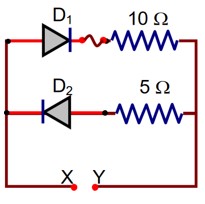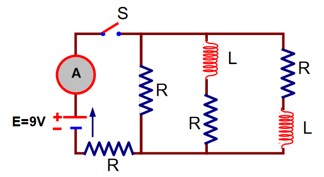Class 12th
Get insights from 12k questions on Class 12th, answered by students, alumni, and experts. You may also ask and answer any question you like about Class 12th
Follow Ask QuestionQuestions
Discussions
Active Users
Followers
New question posted
3 months agoNew question posted
3 months agoNew answer posted
3 months agoContributor-Level 10
Zener break down occurs in p-n junction having p and n both : Heavily doped and have narrow depletion layer.
New answer posted
3 months agoContributor-Level 10
R =
L = 2 mH
E = 9V
Just after the switch 'S' is closed, the inductor acts as open circuit.
New answer posted
3 months agoContributor-Level 10
given are collinear then
Since are not collinear so
Hence possible unit vector parallel to it be for =
New answer posted
3 months agoContributor-Level 10
Given f(x) =
using Leibniz rule then
f'(x) = exf(x) + ex
P = -ex, Q = ex
Solution be y. (I.F.) =
I. f. =
Put x = 0 , in (i) f (0) = 1
Hence f(x) = 2.
Taking an Exam? Selecting a College?
Get authentic answers from experts, students and alumni that you won't find anywhere else
Sign Up on ShikshaOn Shiksha, get access to
- 66k Colleges
- 1.2k Exams
- 681k Reviews
- 1800k Answers


